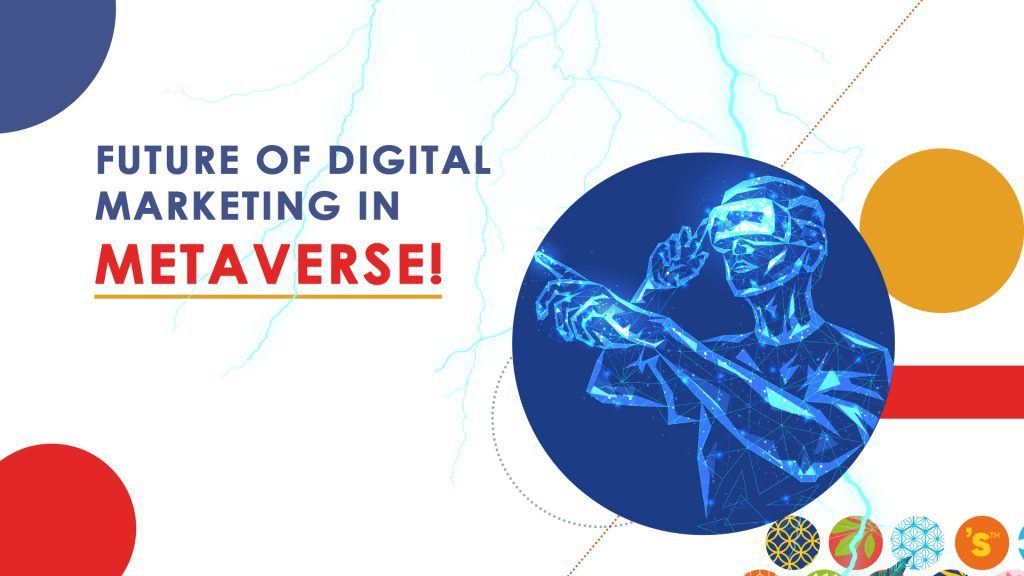The global buzz surrounding Facebook’s imminent changes, spearheaded by Mark Zuckerberg, has captured the world’s attention. The rebranding of Facebook to “Metaverse” signifies a monumental shift—ushering in a realm where real and virtual environments converge to facilitate engagement and interaction.
Navigating Companies Through the Metaverse Era
As the world gears up for this transformative change, envisioning how companies can adapt becomes crucial. For organizations heavily reliant on digital marketing, particularly through social media, the Metaverse introduces profound considerations. It compels businesses to envision a landscape where innovation aligns with consumers’ evolving needs.
The Metaverse’s Impact on Digital Marketing
The metaverse, a virtual shared space created by the convergence of physical and virtual reality, is poised to have a significant impact on digital marketing. As this immersive digital environment continues to develop, it introduces new opportunities and challenges for businesses looking to engage with consumers:
The Metaverse empowers companies to innovate tirelessly, catering to consumers’ needs. Audiences can engage with brands anytime in this new virtual dimension.
Evolution of Digital Marketing
Beyond mere product showcases, digital marketing will take on a new dimension. Real-time tracking through advertisements will redefine marketing strategies.
Virtual Worlds for Real Impact
Brands can harness the Metaverse to create immersive virtual realms. These realms amplify engagement, allure new customers, and empower buying decisions.
The metaverse provides more interactive and immersive experiences for users. Brands can create engaging and memorable experiences that go beyond traditional forms of content, leading to deeper connections with consumers.
Innovative Advertising Formats
The metaverse opens up new possibilities for advertising. Brands can create interactive, gamified, and contextually relevant ads that seamlessly blend into the virtual environment.
Social Commerce Integration
With social interactions at the core of the metaverse, brands can integrate social commerce seamlessly. Users can discover, discuss, and purchase products within the same environment.
The metaverse can facilitate the creation of niche communities centered around specific interests. Brands can target these communities with tailored marketing efforts.
Read More: How will Metaverse Marketing affect your campaigns?
Storytelling Opportunities
Brands can use the metaverse to tell immersive and interactive stories, allowing users to engage with their narrative on a deeper level.
Data Collection and Analysis
The metaverse generates vast amounts of user data, providing insights into user behavior, preferences, and interactions. Brands can leverage this data to refine their marketing strategies.
Challenges of Authenticity
As virtual experiences become more common, brands may face challenges in maintaining authenticity and genuine connections with users.
It raises privacy concerns, as users’ actions and interactions are closely monitored. Brands must handle user data responsibly and transparently.
While the metaverse offers exciting possibilities, technical barriers and accessibility issues may limit widespread adoption in the short term.
Evolution of SEO and Discoverability
Traditional search engine optimization (SEO) may need to adapt to the metaverse’s virtual environments, which prioritize discovery through immersive experiences.
Integration with the Physical World
Brands can explore ways to connect the metaverse with the physical world, creating seamless omnichannel experiences that bridge the gap between digital and physical environments.
A New Reality for Consumer Experience
Imagine purchasing a new mobile phone virtually—testing and exploring various models effortlessly. The Metaverse streamlines decision-making, saving time and effort compared to real-world alternatives.
Personalization and Beyond
Digital marketing’s trajectory transcends boundaries. The Metaverse introduces a realm where personalization thrives, Tailored Offerings Companies can tailor products and services within the Metaverse, aligning precisely with individual consumers’ needs.
Conclusion
the advent of the Metaverse transforms the digital marketing landscape, ushering in a new era of innovation and personalization. As companies strive into this virtual frontier, the potential for reshaping consumer experiences knows no bounds.



